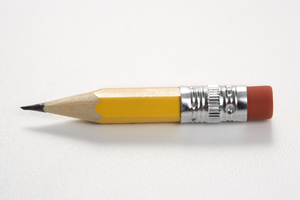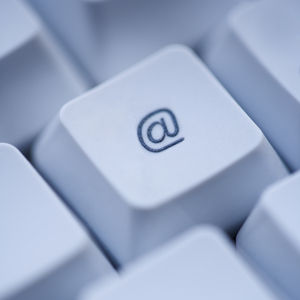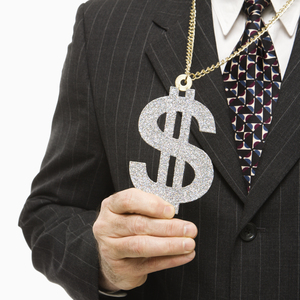YOUR COMPANY IS LOOKING FOR BUSINESS EQUIPMENT FINANCE SOLUTIONS!
You've arrived at the right address! Welcome to 7 Park Avenue Financial
Financing & Cash flow are the biggest issues facing business today
ARE YOU UNAWARE OR DISSATISFIED WITH YOUR CURRENT BUSINESS FINANCING OPTIONS?
CALL NOW - DIRECT LINE - 416 319 5769 - Let's talk or arrange a meeting to discuss your needs
EMAIL - sprokop@7parkavenuefinancial.com
7 Park Avenue Financial
South Sheridan Executive Centre
2910 South Sheridan Way
Suite 301
Oakville, Ontario
L6J 7J8
Direct Line = 416 319 5769

Equipment financing decisions in Canadian businesses often start at the ' lease versus buy' decision point. Leasing business assets is a strategy used by the majority of Canadian businesses. We're examining that initial decision to finance as well as uncovering other information not generally understood when it comes to buying and leasing and the lease versus buy equipment analysis. So, should I buy or lease my business equipment? Let's dig in on leasing options!
UNDERSTANDING THE IMPACT OF LEASING ON YOUR FINANCIAL STATEMENTS
While business owners/financial managers, and rightfully so, reflect on the use of acquired assets and the profits or benefits they will generate, it's also important to understand your financial statements' financial impact.
WHAT FACTORS AFFECT YOUR DECISION TO ACQUIRE AND FINANCE BUSINESS ASSETS?
What factors impact that initial decision to either buy the asset or finance it? Lease versus buy decision makings includes :
Your ability to access financing approval plus the ability to achieve lower monthly payments on an equipment purchase
Any Tax benefits and issues such as depreciation deduction that will play into the finance decision - as well the balance sheet effect of your transaction needs to be considered relative to any ratios and covenants that current senior lenders might require
Your ability to justify the cash flows on the transaction.
Naturally, if your firm has the available cash and cannot negatively impact your current credit lines, simply buying the asset is an option. Many business owners still hold onto the concept of ' pride of ownership and do not wish to take on additional debt. They depreciate the asset over its useful life.
Businesses also have the option of financing assets under a term loan and can deduct the loan's interest on their tax filings.

WHAT ARE THE 2 TYPES OF LEASES FOR A BUSINESS / RESEARCH YOUR OPTIONS
Getting back to ' leasing ' though 2 key options remain. Companies can utilize an 'operating lease' or a 'capital lease ' to acquire the asset. Operating leases involve your lessor taking a position in the asset. When the asset is returned at the end of the term, they will dispose of it for profit or refinance it with another client. This transaction type reduces your overall cost and gives you full use of the asset during the lease term. Your actual lease payments are tax-deductible.
It should be noted that new accounting rules worldwide have somewhat discouraged the ‘off-balance sheet ' aspect of equipment leasing via operating leases
THE CAPITAL LEASE / FINANCE LEASE
By far, the majority of equipment purchase financing in Canada is done under a ' capital lease ' scenario. It is one of the two different types of leases available. Here your company has ownership and use of the asset, and you are in effect financing the entire purchase when you need the equipment - unlike our operating lease scenario. Interest financing costs are deductible under the capital lease scenario, which is another factor to include in your ' life of the equipment' asset acquisition.

WHAT DOES LEASING COST
The actual financing costs in leasing are dependent on your firm’s financial strength and the overall value of the asset. Interest rates for Canadian business borrowers are at an all-time low so equipment lease solutions for any piece of equipment or technology are very competitively priced. While analysis will often show a higher overall cost to financing via a lease the many significant benefits cannot be overlooked by business owners over the long term.
Note also that upfront costs can also be defrayed as many ancillary items to your purchase can be bundled into the financing - An example would be maintenance, install, or service contracts.
UNDERSTANDING END OF TERM OBLIGATIONS
While leasing equipment is utilized by many, it is certainly not understood by all. Businesses lose a significant amount of money by not understanding their obligations during and at the end of the lease term. You should ensure the lessor contacts you before the end of the term and agrees on the lease's final disposition and termination. Otherwise, a new lease term might begin with additional financial commitments by your company.
OPERATING LEASES
Those firms that have entered into operating leases when leasing equipment must carefully consider which of the three options they will choose under an operating lease that comes to full term. Those options are returning the asset, purchasing it for fair market value, or agreeing to a defined lease extension. The lifetime cost of the equipment may be lower in many cases.
Even simple issues as the cost of returning and shipping the asset back to the lessor are often overlooked and can become costly. Miscellaneous charges such as admin paperwork and de-registration of the lessor's security filing should also be considered and attended to.

CONCLUSION - LEASE VERSUS BUY WHEN LEASING BUSINESS EQUIPMENT
The bottom line on your lease or buy decision for a small business in Canada? When it comes to leasing versus buying equipment the lease vs. buy decision should not be taken lightly if you're focused on getting the proper information to acquire your business assets with the right finance solution.
Speak to 7 Park Avenue Financial, a trusted, credible and experienced Canadian business financing advisor who can assist you with your equipment financing and leasing needs.
FAQ: FREQUENTLY ASKED QUESTIONS
Which is better to buy or lease an asset?
The lease or buy decision involves the process of capital budgets to determine whether an asset for the business should be purchased or financed. The process of leasing an asset from a leasing company via fixed installments has implications around the cost of capital as well as the consideration of other pros and cons of acquiring assets for the business.
Click here for the business finance track record of 7 Park Avenue Financial